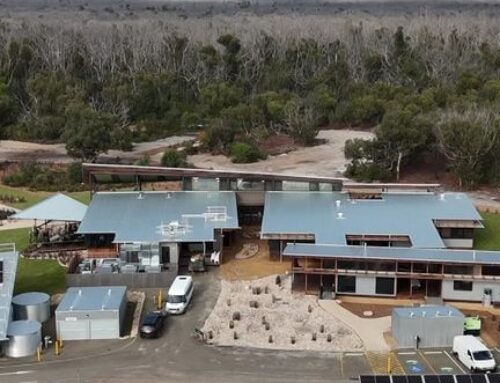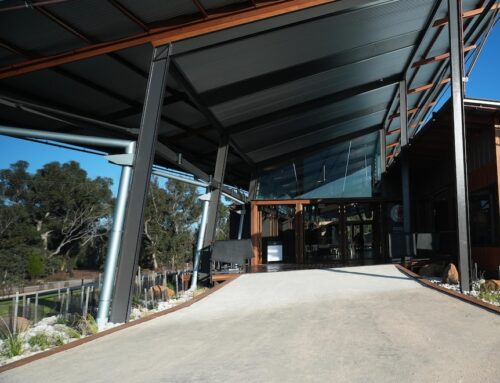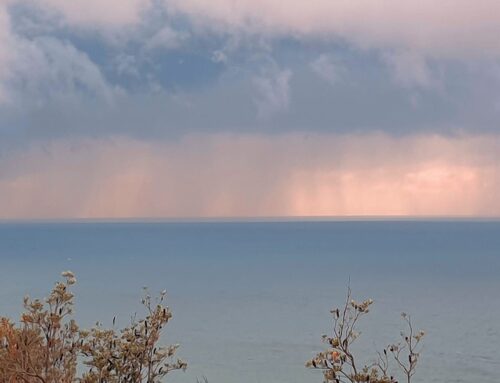When Will Fellowes and Michael McLaughlin first moved to south-west Queensland in 2019, like many other millennials, they thought it would be temporary.
They had moved to Roma, about 500 kilometres west of Brisbane, for Mr McLaughlin’s work as a senior medical officer at the local hospital.
Mr Fellowes was commuting between the town and Sydney, where he worked in finance.
Then the COVID-19 pandemic hit, turning what was meant to be a two to three-year stay into a permanent move.
“It’s been one of those amazing opportunities, after 16 years of travelling backwards and forwards, to sit still for once,” Mr Fellowes said.
“We’ve got much deeper friendships with people now than what we ever had living in the city … life is great.”
Five years on, the couple has established a distillery focusing on Roma’s botanical history.
“Roma has such a strong history of grapes and citrus, and we wanted to pay homage to that, but grapes and citrus are hard to grow on scale,” Mr McLaughlin said.
“We thought we’d value-add by going to the second line of production and make something delicious from those amazing products that we’re growing in that area.”
Tourism boost
Maranoa Regional Council Mayor Wendy Taylor said the venture helped boost the region’s tourism credentials and was embraced by locals as a place of celebrations.
She said there was an added bonus of keeping Mr McLaughlin in town as one of region’s senior doctors.
“They’re just a breath of fresh air, two young professionals who have decided to make the Maranoa home,” Cr Taylor said.
“They’ve brought a lot of energy into their business.”
Independent think tank the Regional Australia Institute hoped the success of millennial couples like Mr Fellows and Mr McLaughlin could be replicated across the country.
The Institute’s CEO Liz Ritchie said regional communities had been energised by the more than 100,000 millennials who had moved to country Australia in the past decade.
Despite ongoing issues with the availability and affordability of rentals in regional Australia, Ms Ritchie said there were still opportunities for those looking to move from the city.
“We acknowledge the vacancy rates are probably at record lows in many parts of regional Australia, but there are still houses in the purchase market,” she said.
“But the opportunity for [millennials] to afford to buy a home, in any part of rural and regional Australia would be far more accessible and affordable than it would be in Melbourne and Sydney.”
The Institute tracked the movements of Australians using data from more than 16 million Commonwealth bank customers.
In its latest report for the March 2024 quarter, coastal areas like Queensland’s Gold Coast and Sunshine Coast continued to top the list of most popular destinations for Australian movers.
But it found strong signs people were beginning to move from those areas into inland regional communities.
In New South Wales, Lake Macquarie had the greatest share of internal migration at 4.4 per cent.
In Victoria, Greater Geelong and the Moorabool Shire were the biggest beneficiaries, seeing inflows of between 5 and 6 per cent.
Busselton in Western Australia had inflows of 2.2 per cent, with most coming from other regions.
‘Regional renaissance’
Demographers believe the trend is a sign of the continued attraction of regional areas for those struggling with cost-of-living pressures in capital cities.
The University of Southern Queensland’s Anthony Kimpton said data showed older millennials were often moving to mid-sized regional cities in inland regions, while younger millennials were still largely moving overseas.
“We continue to have this regional renaissance where cities are losing some of the appeal that they might have had,” Dr Kimpton said.
“A lot has changed. We’ve got a lot more remote working options for a lot of professions, online shopping — so a lot of these things you felt you might have been missing out living in the regions previously just don’t apply in the same way.”
Cr Taylor said she hoped the trend of millennials moving to the country would continue to help fill skills shortages.
“I think we’re struggling now with just employment … we’ve got 1,000 jobs [going], we could employ 1,000 people tomorrow,” Cr Taylor said.
Mr Fellowes and Mr McLaughlin hoped other millennials would embrace life in the country as they had.
“When you look at what a two-bedroom apartment would [cost] for us in Sydney, you can buy 55-acre [22-hectare] farm and probably more,” Mr Fellowes said.
“So it’s not surprising millennials and younger generations are moving out of the cities.”
Mr McLaughlin agreed.
“We’ve got an amazing place to live and really build something with that, which we certainly wouldn’t have had the capital or ability to do in the city,” he said.
Key stories of the day for Australian primary producers, delivered each weekday afternoon.
Posted , updated




